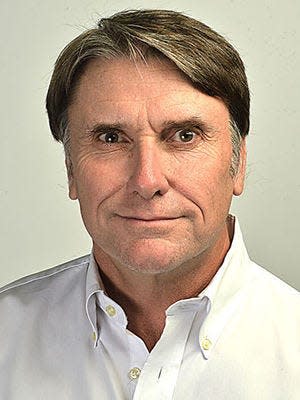Crypto crowd to billionaires in Davos: The bad apples are gone! Come join us!
The World Economic Forum known as Davos originated in 1971 as a gathering in which Europeans were to be taught American business techniques. The chief American business technique to be passed along has been, as one attendee earnestly put it 10 years later, how to take “a delightful vacation on the expense account.”
No one ever said Europeans weren’t fast learners.
Aside from an opportunity to enjoy a Swiss alpine ski vacation and swill Scotch in peace, the convention of fabulous billionaires is hyped as the one great opportunity for global luminaries to step in and solve all the world’s problems.

Because, you know, who understands poverty, hunger and inadequate health care better than someone with six mansions and 50 vintage automobiles?
This year, the Davos cabal is Very Worried about climate change, the war in Ukraine and the handful of U.S. House of Representatives exotics who would gladly tank the global economy if it meant they would gain another couple thousand followers on Twitter.
But don’t worry, they’re on it. Never mind that over the last half century their track record has largely resembled the annual Earth Summit, famous for appointing blue ribbon panels charged with setting up ad hoc advisory committees to select rapid-response task forces to pass resolutions calling for written action plans to urgently investigate the chances of possibly doing something.
Not even the far right seems to take the forum seriously enough to put its best people in charge of the inevitable conspiracy theories. The most popular storylines — that the forum (I am not kidding) is plotting to force people to eat insects instead of meat, and that it “appointed” Kevin McCarthy to the position of House Speaker before the first vote was taken — are so brittle that they smack of an unimportant task that’s been farmed out to a junior vice president in the Milwaukee bureau.
But as long as billionaires have money to spend, the ground they walk upon will be worshiped by innovators and cons alike who want the financial backing of those with bottomless pockets. Like sutlers and hookers following a Civil War army, they have flocked to Davos hoping for a software contract, or someone to take a flier on a source of green energy that’s never been tried before. Or perhaps an insect cookbook.
So naturally, the entire crypto crowd is front and center, and they have great news! All the crypto bad actors have now been weeded out, so the ones that remain are the true, virtuous messiahs of a new monetary system that will change the world.
In fact, the events of 2022 were the best thing that ever could have happened to the industry, because now that FTX, BlockFi, Three Arrows Capital, Voyager Digital, Celsius, Terra, Luna and on and on have bitten the dust, you can be assured that the ones left are only the finest, most stable members of the fake-money community. So jump back in boys, the water’s fine.
But then billionaires, the self-made ones, did not get to be billionaires by buying into Ponzi schemes, or investing in asset classes that have zip, zero, nada, none, nothing in the way of hard value behind it. The one thing a dollar bill has going for it is order. The paper itself is worthless, but behind that paper is a long history of dependability, an accepted set of regulations, and a universal trust that if someone takes that dollar from you illegally, there is a monolithic institution of justice that exists to help you get it back.
Crypto, curiously, subtracts out all the things that make a dollar valuable, then brags that what they’ve done has made their digital paper more valuable, not less.
As crypto has evolved, it has slowly crept back to more resemble the monetary system we already have — creating bank-like institutions to handle transactions and hold your money, reeling unrealistic interest rates back into bank-like territory, and even seeking, sort of, to be regulated (in name only, of course) so it can dupe its marks into thinking that their money is safely within the realm of government oversight.
No less an authority on fraud than Anthony Scaramucci is in Davos, hawking crypto, even as he himself was into FTX for $10 million.
“I have to tell you, the betrayal and the fraud — it’s bad on a lot of different levels,” Scaramucci told The Washington Post. “It hurt me reputationally. When you have a friend who betrays you like that, it really sucks. But that doesn’t mean it’s the end of blockchain or crypto.”
On that, for what it’s worth, you have Anthony Scaramucci’s word.
Tim Rowland is a Herald-Mail columnist.
This article originally appeared on The Herald-Mail: Anthony Scaramucci believes in crypto. Isn't that enough?
